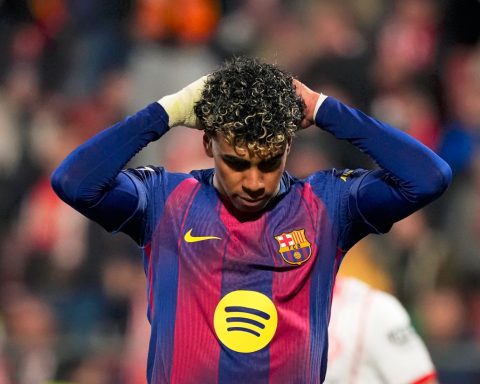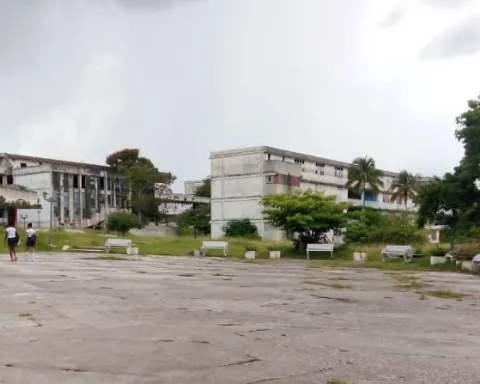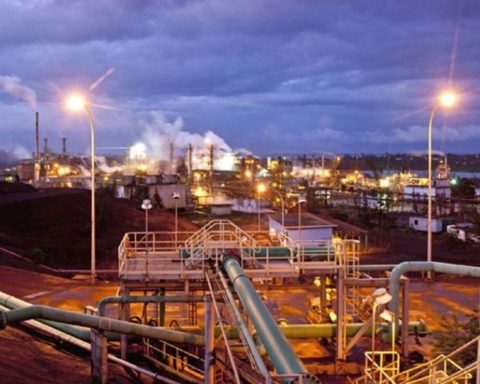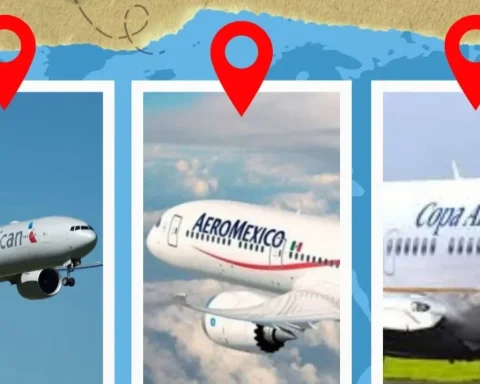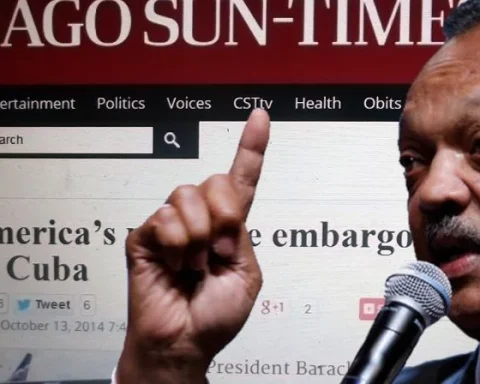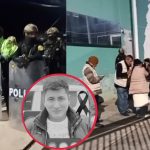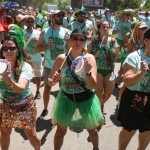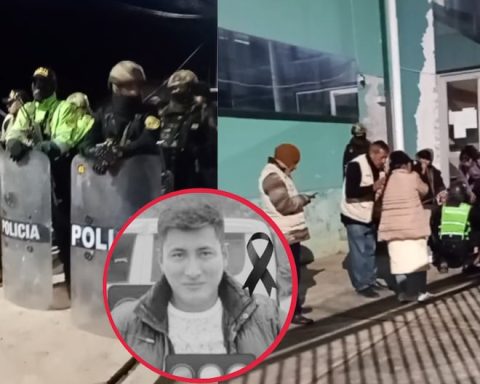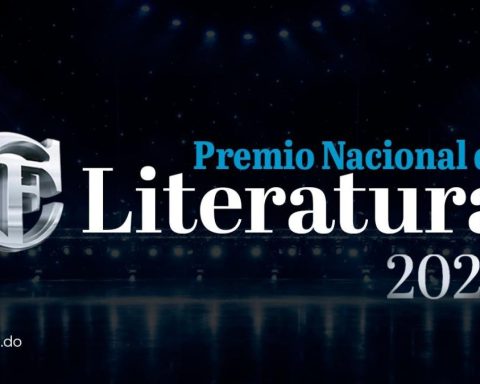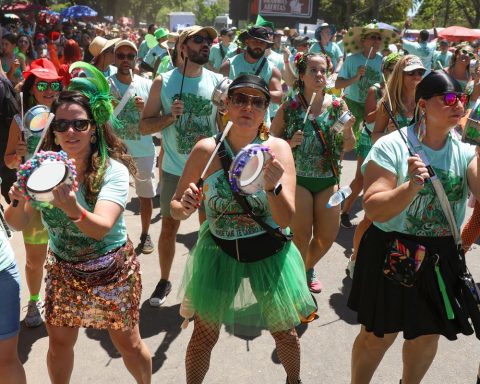The transformative work that is being undertaken in the neighborhoods of Cuba is not something that tends to disappear, quite the contrary. In this regard, President Díaz-Canel Bermúdez has said on more than one occasion that it is an effort that is here “to stay” and that it deserves to continue to be perfected while working the magic of articulating all those who work for good changes.
Due to the importance that the task entails, the country’s leadership follows up on everything that is being done in the communities. This Tuesday, from the Palace of the Revolution, the agenda was about what has been taking place in the neighborhoods of Havana.
It was, without a doubt, a fruitful meeting that was headed by the First Secretary of the Central Committee of the Communist Party and President of the Republic, Miguel Díaz-Canel Bermúdez, as well as by the Vice President of the Republic, Salvador Valdés Mesa, and by the Secretary of Organization of the Central Committee of the Communist Party, Roberto Morales Ojeda; both, members of the Political Bureau.
The starting point for the analysis on the day was a speech by the Governor of Havana, Reinaldo García Zapata, who pointed out that with regard to transformations, the capital is going through a second stage that covers 127 neighborhoods, for which The results of the last accountability process have been taken into account, as well as the definition of the scenarios with the greatest difficulties.
“Of the 253 districts identified in the sociopolitical map, 147 belong to the neighborhoods that are undergoing transformation,” explained the Governor of Havana, who stated that another starting point for the work was the process of analysis and discussion of the Plan and the 2022 Budget, and its approval in the Municipal Assemblies on January 29 and 30.
In the same way -as explained by García Zapata- the recommendations made by the Demographic Observatory of the province were taken into account, and by researchers from different centers of Social and Humanistic Sciences, who are inserted in the Comprehensive Development Program of the Vulnerable neighborhoods.
According to the Governor, so far this year 4,082 actions have been carried out —”remember, he said, that the previous year more than 36,000 were carried out”—, of which 1,991 constructive actions have been completed, of which 9 thousand 305 planned so far.
In addition, Reinaldo García Zapata explained, 2,091 actions of a social nature have been carried out in the neighborhoods that were incorporated into the transformative action during 2022: there has been characterization of family nuclei, and tens of thousands of visits to them; strengthening of organizations and community factors; delivery of supply books; housing legalization; employment or continuing education offers; registration in children’s circles; attention to mothers with three or more children; and economic benefit to families in situations of vulnerability.
The Governor of the capital told the meeting about how a state MSME has been incorporated in the municipality of Centro Habana that runs with the change of the sanitary hydraulic networks. García Zapata explained that in the city there are more than 500 citadels in need of such restitution, and that currently, with this new actor in the economy, about ten weekly changes of “lines” (as the networks are also known) are being carried out.
This is something to highlight, he reflected, because sometimes the solution of a problem to people does not represent the total solution of their needs, and yet a single positive step has a tremendous impact on the levels of satisfaction of those who experience the transformation of a neighborhood.
As in everything that is being done by each ministry and multiple entities and State agencies have taken part in what the territories are experiencing, the head of the Food Industry (Minal), Manuel Santiago Sobrino, spoke at the meeting about what is happening in the capital municipality of Regla. The minister made reference to important works that have a direct impact “on the self-esteem of the people of Regla”, and affirmed that, although not all of them have been completed, changing landscapes is an ongoing and encouraging process.
Rule, announced, will have a group of new works that will provide services to the population. Santiago Sobrino highlighted the importance of the chain that has been produced with the new forms of economic management, as well as an approach that does not lose sight of the sustainability of each undertaking.
With regard to how in this overseas municipality and with elevations of the land, there are plans to address the stairs through which a population marked by aging travels —a decision born of the consensus of the citizens—, President Díaz-Canel Bermúdez mentioned the value of the transparency, “that people know what money they have and how it will be used”. Later, he said, it will be necessary to account for whether the financial resources were used for what was planned or for something else.
Antonio Rodríguez Rodríguez, President of the National Institute of Hydraulic Resources (INRH), spoke in a similar tone with what was discussed at the meeting, expressing that the experience lived in Havana “we have taken to the whole country,” where a notable investment will be made. in vulnerable neighborhoods. And in the case of the capital, he affirmed: “we are going to work in 114 neighborhoods”, both in maintenance and in investments, to improve the situation.
Particularly interesting was the reflection of the civil engineer Francisco Díaz Hernández, President of the Superior Organization of Business Management GEICON (Business Group of Construction Materials), who, when sharing his work experience in the municipality of Centro Habana, confessed that he has had a very big training in his life, “but working in the neighborhoods is the most important thing that I have had in my professional training”.
Then President Díaz-Canel Bermúdez stated: “That is where one sees the real problems of the people. The one who is not sensitive to the issues of the neighborhoods is not sensitive to anything.
Francisco stressed that whenever possible, in addition to the change of line (hydraulic sanitary) in the citadels, efforts must be made to recover walls, ceilings, all possible spaces. And he gave the example of Los Sitios, where comprehensive work includes warehouses, butcher shops, bakeries, sidewalks and containers, “and we go by quadrant, advancing, in such a way that people see a transformation.”
Towards the end of the meeting, Roberto Morales Ojeda announced that in the next few days a national workshop will be convened whose purpose will be to evaluate what has been done in Havana and the participation in it of the agencies of the Central Administration of the State, of the mass organizations, and also from research centers. He also referred to good experiences throughout the country, because “with all this work we will be able to build a theoretical framework that allows us to socialize all these experiences and prepare all the actors.”
As explained by the Member of the Political Bureau, the objective is that, “together with the Party, with the Government, with the mass organizations, with the National Assembly”, “a proposal can be elaborated with the experience of this period”, the which standardizes modes of preparation and evaluation indicators of “this great effort”, of the true impact, “now with the budgets and with all the possibilities that the discussion in the municipal assemblies of People’s Power has given.”
President Díaz-Canel Bermúdez valued that in everything that has been done, one of the strengths has been “the way in which the municipal budgets were conceived, where there is already a clarity of what each municipality has,” which “allows a higher level of planning, control, execution, removes uncertainty and then allows us to work with more coherence».
Once again, the Head of State insisted that “we are working on infrastructure problems, on accumulated problems, but we have to work hard on the social, spiritual, which has educational, cultural, sports, and recreational components.” . And he highlighted the role that young people can play in the transformative work from the neighborhoods.
“We are going to prepare that meeting well” —said the president in reference to the national workshop that Morales Ojeda spoke about—; because he will make it possible, he stressed, to socialize the best experiences in Cuba, and thus the work, through complementation, will be superior.
